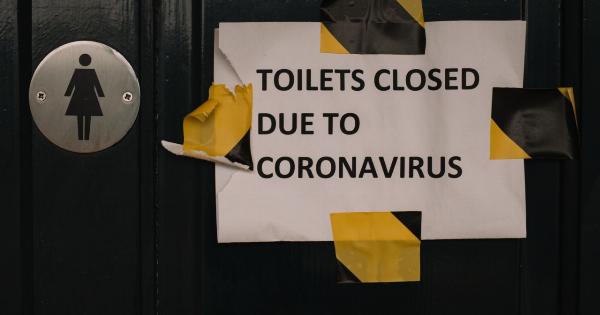The human body is made up of about 60% water and we all know that water is essential for our survival. It is recommended that we drink at least 8 glasses of water per day to stay hydrated and maintain a healthy body.
However, not all water is created equal and some types of water can actually be harmful to our health. In this article, we will explore why you should avoid drinking certain types of water and what alternatives you can try instead.
Harmful Chemicals in Tap Water
Tap water is the most common source of drinking water for most of us. However, it is important to note that tap water can contain harmful chemicals such as chlorine, fluoride, and lead.
Chlorine is added to tap water to kill bacteria and viruses, but it can also react with naturally occurring substances in the water to form harmful byproducts such as trihalomethanes (THMs) and haloacetic acids (HAAs). Long term exposure to these chemicals can increase the risk of cancer and other health problems.
Fluoride is added to tap water to help prevent tooth decay, but excessive fluoride intake can cause fluorosis, a condition that affects tooth enamel. Fluoride has also been linked to impaired brain development, thyroid dysfunction, and bone fractures.
Lead is a toxic metal that can leach into tap water from old plumbing systems. Long term exposure to lead can cause developmental delays, learning difficulties, and impaired hearing and speech.
Contaminants in Bottled Water
Bottled water is often marketed as a safer and healthier alternative to tap water. However, bottled water can also contain harmful contaminants such as phthalates, bisphenol A (BPA), and antimony.
Phthalates and BPA are chemicals that are used to make plastic bottles and can leach into the water over time. These chemicals have been linked to hormonal imbalances, obesity, and cancer. Antimony is a toxic metal that can leach into the water from the plastic bottles. Long term exposure to antimony can cause headaches, dizziness, and skin irritation.
The Cost of Drinking Water
Drinking water can be expensive, especially if you rely on bottled water. In fact, bottled water can cost up to 2,000 times more than tap water.
While bottled water may seem convenient, it is important to consider the environmental impact of using plastic water bottles. Plastic water bottles are not biodegradable and can take hundreds of years to decompose. They can also contribute to the growing problem of plastic pollution in our oceans and landfills.
Alternatives to Drinking Water
Instead of relying on tap water or bottled water, there are several alternatives that you can try. One of the simplest alternatives is to filter your tap water.
A quality water filter can remove harmful chemicals, bacteria, and viruses from your tap water and make it safer to drink. Another alternative is to drink herbal tea or mineral water. Herbal tea is a great source of antioxidants and can help with digestion, while mineral water is rich in essential minerals such as calcium and magnesium.
You can also try drinking coconut water or aloe vera juice.
Coconut water is a natural electrolyte that can help replenish your body after exercise or illness, while aloe vera juice is a natural detoxifier that can help cleanse your body of harmful toxins.
Conclusion
While drinking water is essential for our survival, not all water is created equal. Tap water can contain harmful chemicals such as chlorine, fluoride, and lead, while bottled water can contain contaminants such as phthalates, BPA, and antimony.
In addition to the potential health risks, drinking water can be expensive and contribute to environmental pollution. There are several alternatives to drinking water such as filtering your tap water, drinking herbal tea or mineral water, and trying coconut water or aloe vera juice.
By choosing a healthier and more sustainable source of hydration, you can help improve your health and protect the environment.






























